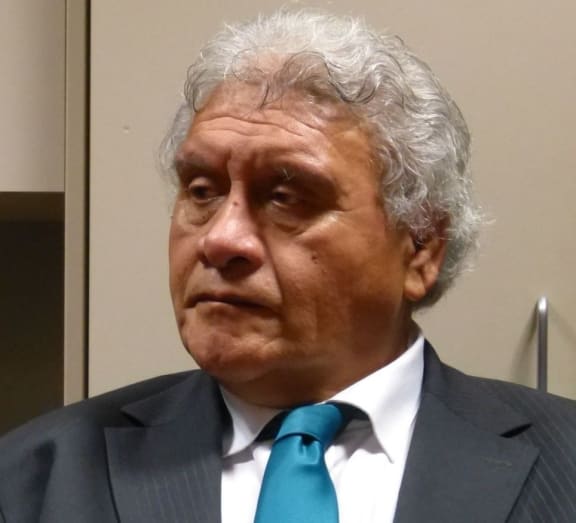An iwi says it's starting to pay the price for eight tribes' failure to finish dividing a major forest among themselves.
Arbitrators have been called in to referee an argument over territorial rights to the Kaingaroa Forest.
It's become the Treaty settlement that won't settle down.
Five years have gone by since the Crown gave the woods back to eight tribes. As part of the bargain, they had to cut it into slices. But the pie is still in one piece.
They've missed self-imposed deadlines to divide the forest according to mana whenua rights, or traditional tribal areas.

Pem Bird. Photo: RNZ
Pem Bird of Ngati Manawa is confident his people will prove their connections to the whenua.
He says it's up to the tribes to to show arbitrators their sites of significance, such as urupa. People vanish, but the stories don't. It's not like a rabbit that a magician can pull out of a hat and make it disappear, he says.
Kaingaroa Forest is vast: on satellite maps it shows up as a big dark green block between Taupo and Whakatane.
The trees are growing and the iwi are collecting rent from the company with the cutting rights.
But the chairperson of Ngati Rangitihi, Graham Pryor, said the dispute had dominated efforts to settle the deal.
He said it's sucked up time and money, and his iwi had not had time to stop and think where it might put its earnings. It's opportunities to invest had been delayed, he said.
Under legislation, an adjudication panel should have reached a decision on the disputed lands three years ago.
Despite the cost and delay to the mana whenua process, Graham Pryor, said the disagreement should be resolved the Maori way, not through a western legal system.
The iwi processes are superior, and there should not be an intervention based on a mechanism from another culture. The Maori approach would be permanent and would keep tribes together and celebrate their relationships, rather than being divisive, he said.
An independent business consultant with a forestry background - Bryce Heard - said it was difficult for tribes to make investment decisions, when they did not know how much they had to invest.
He said that in a perverse way he could see a silver lining because the delay triggered a form of compulsory saving. The money from the rentals mounted up while the tribes continued to work on working out their mana whenua rights, he said.
The final division of the land should be agreed by the end of next month.

